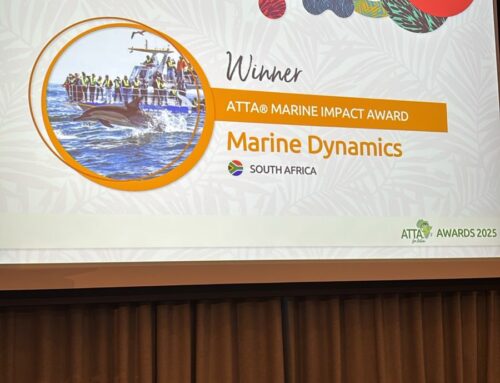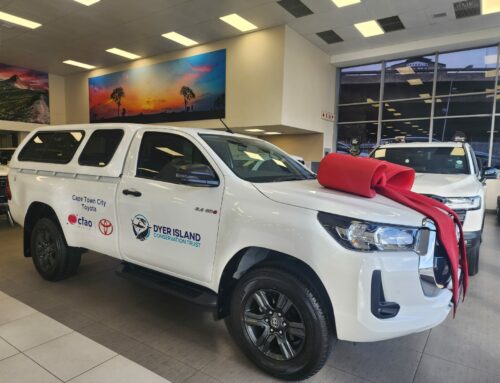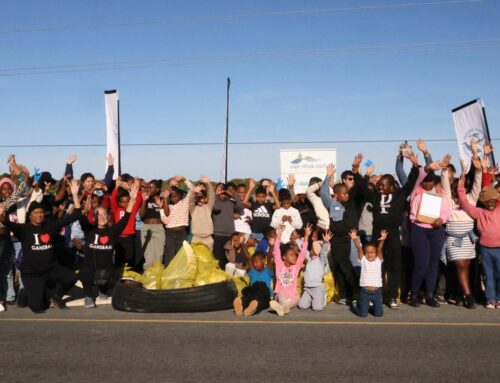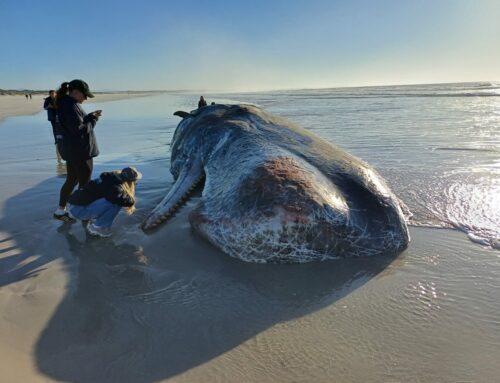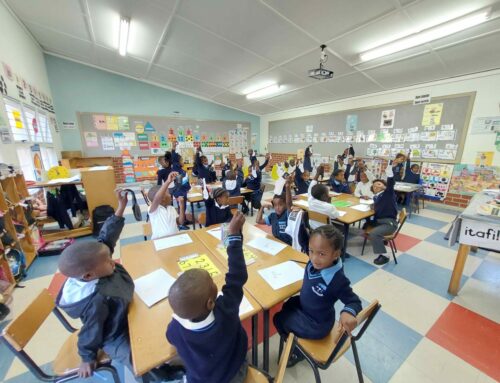Help us rescue, feed and rehabilitate our 2022 batch of African penguin chicks.
On Saturday 5 November, the African Penguin and Seabird Sanctuary – APSS, with the help of CapeNature retrieved 48 African penguin chicks from Dyer Island. Another 16 penguin chicks were removed from the island on Tuesday 8 November.
The chicks are currently at the sanctuary where they will be fed and rehabilitated, while their parents, finish moulting, on the island.
But why do we intervene and remove African Penguin chicks from Dyer Island and keep them at the African Penguin and Seabird Sanctuary for up to 6 weeks?
It is not because African Penguins are bad parents, in actual fact they do a really good job to raise and feed their young in spite of some challenging circumstances. October-November is the end of the breeding season, chicks are supposed to be fat & healthy and ready to be kicked out of the nest to start fending for themselves.
The parents are faced with a dilemma, not only do they have to feed their young, they also need to undergo a full feather change. This means that they have to build up enough fat reserves (about 3 times their normal body weight) to stay on land for their entire moult because they are not waterproof and therefore, they cannot hunt. Due to a variety of circumstance, some parents start their moult before their offspring has reached the fledgling stage. These chicks will either starve to death on the island or venture into the ocean without the required amount of fat reserves to allow them to survive the challenges of the wild.
In a perfect world one could argue that this is a natural process of selection, but then in a perfect world man would not have removed millions of penguin eggs to be consumed as a delicacy, or scraped tons of guano off the penguin nesting islands. Removing the guano robbed the penguins of their insulated, protected burrows. They were forced to nest on the surface, exposing both their eggs & chicks to opportunistic predators like sea gulls. They also did not ask to be covered in toxic oil.
So we do not reside in a perfect world and therefore we need to take some active conservation measures to try and prevent the possible extinction of one of South Africa’s most iconic animals. The predicted date for extinction from the wild is 2026. At the moment #EveryPenguinCounts. With less than 1% of the original African Penguin population left in the wild we need to act. Removing underweight chicks & chicks of moulting parents and hand raising them is but one part of the bigger African Penguin Biodiversity Management Plan.
One donation from you, is one small step towards preventing the extinction of the African penguin.
The number of chicks that will now be in our care will require more time, resources and especially fish. We need YOUR help! We operate without ANY corporate sponsorship.
Visits to the sanctuary and cash donations are also greatly appreciated, along with donations of old towels or newspapers
South African, UK, And US donors can receive tax benefits https://dict.org.za/donate/
We also invite you to visit the AFRICAN PENGUIN AND SEABIRD SANCTUARY when you are on holiday in the Overstrand area, we are 30 minutes’ drive from Hermanus in Kleinbaai, between Gansbaai and Franskraal.
Please bring along old towels and newspapers. Have a cup of coffee and tea, and buy your Christmas gifts from our curio shop, to help support our baby boom!
FREE ENTRANCE – OPEN 9 TO 4 EVERY DAY – FEEDING TIME 3PM
Gansbaai is known for its famous white sharks and its visiting southern right whales; however, there is also a well-dressed character, the tuxedoed African penguin, that resides on the protected Dyer Island. The Dyer Island Conservation Trust (DICT) is the result of a life-long passion for marine life by Wilfred Chivell, owner of ecotourism businesses Marine Dynamics and Dyer Island Cruises. The Dyer Island Conservation Trust built the African Penguin and Seabird Sanctuary (APSS) in 2015, a world class temporary rehabilitative care facility for marine birds with a special focus on the endangered African Penguin, whose numbers are at an all-time low – only 13 300 breeding pairs left in South Africa.
APSS is open to visitors who can enjoy something scrumptious from the onsite coffee shop or buy a gift or two from the curio shop – with profits supporting penguins. All this whilst observing the penguins in the conditioning pen through the one-way glass. Every day at 3pm, the penguins are fed, and the close-up action can be viewed on a big screen, along with an educational chat from one of the staff. There is no entrance fee although donations are always welcome.
www.dict.org.za / www.dyerislandcruises.co.za / www.marinedynamics.co.za
https://dict.org.za/…/african-penguin-seabird-sanctuary/

